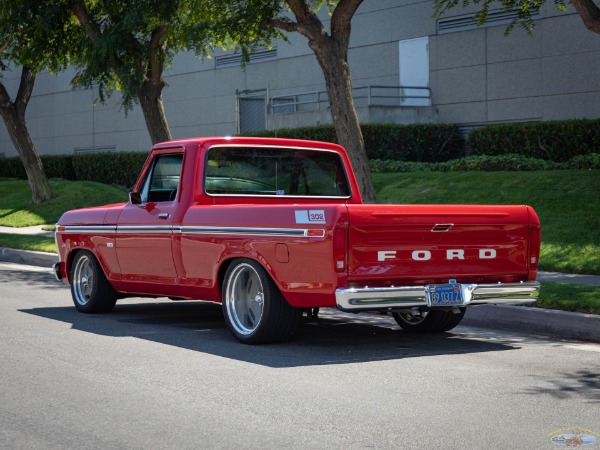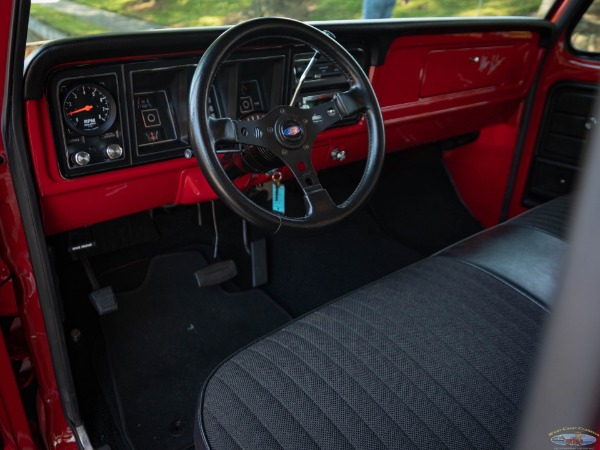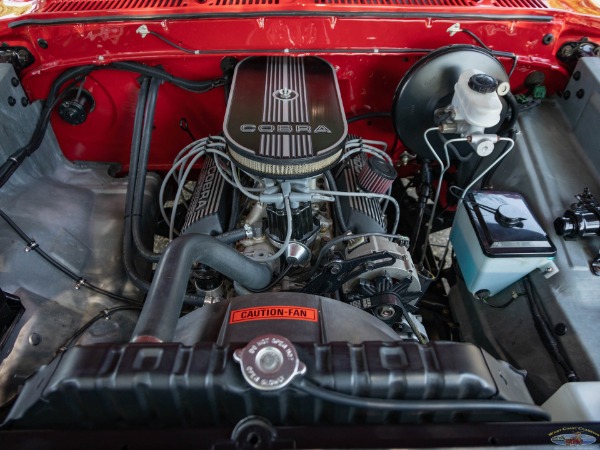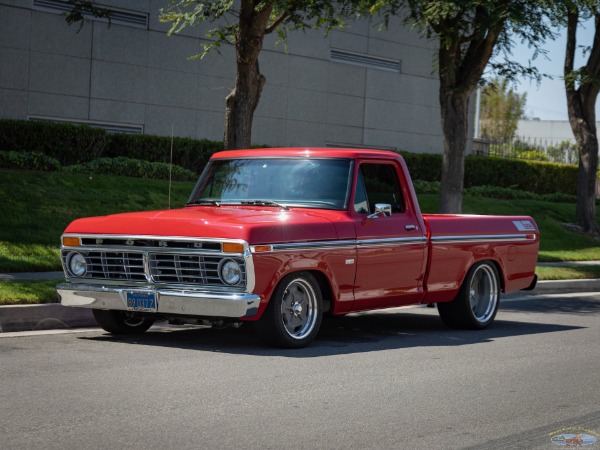Introduction to the 1973 Ford F100 Custom
Initially, the Ford F-Series was introduced in 1948, quickly establishing itself as America’s favorite pickup truck. By 1973, the F-Series had evolved significantly, with the F100 Custom representing a perfect blend of performance and comfort. Specifically, the 1973 Ford F100 Custom featured updates in both design and engineering, making it a standout model. Additionally, this year marked the beginning of the sixth generation of F-Series trucks. Consequently, the 1973 F100 Custom holds a special place in the history of American pickups.
Evolution of Ford Leading to the 1973 F100
Ford, founded by Henry Ford in 1903, has a storied history of innovation and automotive excellence. Initially, Ford focused on producing affordable cars for the masses, with the Model T being a prime example. Over the decades, Ford expanded its lineup, introducing trucks that catered to both commercial and personal use. By the mid-20th century, the F-Series had become synonymous with reliability and versatility. Importantly, the introduction of the F-Series in 1948 marked a significant milestone for Ford, solidifying its reputation in the truck market.
The 1973 F100 Custom emerged during a time of change and advancement within the automotive industry. The energy crisis of the early 1970s and evolving consumer needs influenced Ford’s approach to truck design. Consequently, the sixth generation of F-Series trucks, starting with the 1973 model, incorporated improvements in fuel efficiency, safety, and comfort. These changes reflected Ford’s commitment to adapting to the market while maintaining the ruggedness and dependability that the F-Series was known for.

Visionary Design and Influential Designers
The design of the 1973 Ford F100 Custom was a collaborative effort led by Ford’s truck design team. Initially, the team aimed to create a truck that was both functional and aesthetically pleasing. Notably, the 1973 model featured a more squared-off, robust appearance compared to its predecessors. This design choice not only enhanced the truck’s durability but also gave it a modern, commanding presence on the road.
Moreover, the design team focused on improving aerodynamics and ergonomics. The new front grille design and reshaped hood contributed to better airflow and fuel efficiency. Additionally, the interior was redesigned to provide more comfort and convenience for the driver and passengers. Designers included features such as a more spacious cab, improved seating, and better visibility. These updates highlighted Ford’s dedication to enhancing the overall driving experience while maintaining the truck’s workhorse capabilities.
Unleashing Power: Engine and Performance
Under the hood, the 1973 Ford F100 Custom offered a range of engine options to suit different needs. Initially, the base model came with a 240 cubic inch inline-six engine, providing reliable performance for everyday tasks. For those seeking more power, Ford offered several V8 options, including a 302 cubic inch V8 and a 360 cubic inch V8. Importantly, these engines were designed to deliver a balance of power and fuel efficiency, catering to both work and leisure activities.
The performance of the F100 Custom was further enhanced by its robust suspension system. Ford equipped the truck with a twin I-beam front suspension, providing a smooth and stable ride even on rough terrain. Additionally, the truck featured power-assisted brakes and steering, ensuring precise handling and control. These performance attributes made the 1973 F100 Custom a versatile vehicle, capable of handling a variety of tasks with ease.
OUR 1973 Ford F100 Custom
‘We are proud to present a full frame off restored customized 1973 Ford F100 Full Size 1/2 ton Pick Up.
Every nut and bolt replaced
Boxed and powder coated frame
Nearly 30K in paint and body work.
Custom radius detail on the bed.
302 V8 from a 1990 Fox body Mustang
Ford Racing Cam/Edelbrock Manifold/Holley 600
Ford 470 Trans with O/D
Narrowed Ford 9 inch rear end
Custom rear exit dual exhaust with turndowns just visible under the license plate.
Quick 1 programmer–Cruises at 65MPH under 2000RPM on the highway
Ford Crown Victoria HD front end swap with power steering
American Racing Salt Flat Special Wheels – 17″ up front – 20×12 in the rear with new Pirelli 335 tires
All new interior
3 point harness belts
RetroSound audio head unit with Bluetooth and added USB connection in the glovebox.
Polk Audio in the door and center channel in the dash.
Alpine amp mounted under dash.
JL Audio 10″ sub behind passenger seat with control knob hidden under dash’
Luxury and Innovation: Interior and Technology
Inside, the 1973 Ford F100 Custom combined functionality with comfort. The interior featured high-quality materials and a driver-focused layout, ensuring a pleasant driving experience. Specifically, the seats were designed for ergonomic support, making long drives more comfortable. Additionally, the dashboard was equipped with a comprehensive set of gauges, providing drivers with essential information at a glance. The F100 Custom also included amenities such as air conditioning, power windows, and an optional AM/FM radio, enhancing the overall driving experience.
Technologically, the 1973 F100 Custom was ahead of its time. It offered advanced features like a dual fuel tank system, allowing for extended range and convenience. Moreover, the truck included an improved heating and ventilation system, ensuring comfort in various weather conditions. Ford’s attention to detail extended to the smallest features, such as the well-placed controls and switches. These interior elements combined to create a driving experience that was both luxurious and practical.
Limited Production and Market Impact
Ford produced the 1973 F100 Custom at its various assembly plants across the United States. Initially, the truck was marketed as a versatile vehicle, appealing to both commercial users and private owners. The F100 Custom’s impressive design and reliable performance quickly garnered attention, making it a standout in the competitive truck market of the 1970s. Additionally, the introduction of new features and design elements highlighted Ford’s commitment to innovation and quality.

The market impact of the 1973 F100 Custom was significant. It reinforced Ford’s reputation for producing high-quality, dependable trucks. Moreover, the success of the F-Series helped establish Ford as a leader in the truck segment. The 1973 F100 Custom, in particular, became a symbol of American automotive prowess, admired for its blend of power, sophistication, and cutting-edge technology. Today, the 1973 Ford F100 Custom remains a highly coveted collector’s item, cherished by enthusiasts and automotive historians alike.
OUR OTHER INVENTORY
Enduring Legacy and Influence
Finally, the legacy of the 1973 Ford F100 Custom extends far beyond its production years. The truck’s design and engineering innovations have left a lasting impact on the automotive industry. Not only did it set new standards for performance and luxury, but it also influenced the design of future trucks. The F100 Custom’s combination of power, style, and technology continues to inspire modern truck manufacturers.
The enduring popularity of the 1973 F100 Custom underscores its significance in automotive history. Collectors and restorers strive to preserve these trucks, maintaining their original features and performance capabilities. This dedication ensures that the F100 Custom’s legacy will continue for generations to come. Ultimately, the 1973 Ford F100 Custom represents a pinnacle of automotive design and engineering, a testament to Ford’s commitment to excellence.
Thrilling Achievements: Detailed Racing History
The 1973 Ford F100 Custom also made a notable impact in the world of motorsport. Initially, Ford aimed to showcase the truck’s performance capabilities through competitive racing. The F-Series had already established a strong reputation on the track, and the 1973 model continued this tradition. In particular, the F100 competed in various racing events, where its power and reliability were put to the test.
One of the most significant achievements of the 1973 F100 Custom was its performance in off-road racing events such as the Baja 1000. Drivers like Parnelli Jones and Bill Stroppe drove the F100 to numerous victories, demonstrating the truck’s exceptional engineering. Additionally, the F100’s success in racing helped to elevate Ford’s brand image, emphasizing its commitment to performance and innovation.
Furthermore, the F100 Custom’s racing pedigree extended to other events, including truck pulls and endurance races. The truck’s robust engine and advanced suspension system made it a formidable competitor in various racing disciplines. The F100’s performance on the track demonstrated its versatility, proving that it could excel both as a work truck and a high-performance racer. This dual capability made the F100 a favorite among racing enthusiasts and truck collectors alike.

Conclusion: The Lasting Impact of the 1973 Ford F100 Custom
In conclusion, the 1973 Ford F100 Custom is a remarkable vehicle that embodies the spirit of innovation and excellence that defined Ford during the mid-20th century. Its powerful engine options, luxurious interior, and advanced technology made it a standout in the automotive landscape of the 1970s. The truck’s design, led by Ford’s visionary team, showcased a perfect blend of style and functionality, setting new standards for both performance and luxury.
The 1973 F100 Custom’s impact on the automotive industry was profound, influencing the design and engineering of future trucks. Its success in racing further cemented its legacy, demonstrating Ford’s commitment to building vehicles that excelled in both form and function. Today, the 1973 Ford F100 Custom remains a highly prized collector’s item, cherished for its historical significance and timeless appeal. This truck is not just a testament to Ford’s storied past but also a symbol of the enduring allure of American automotive craftsmanship.

